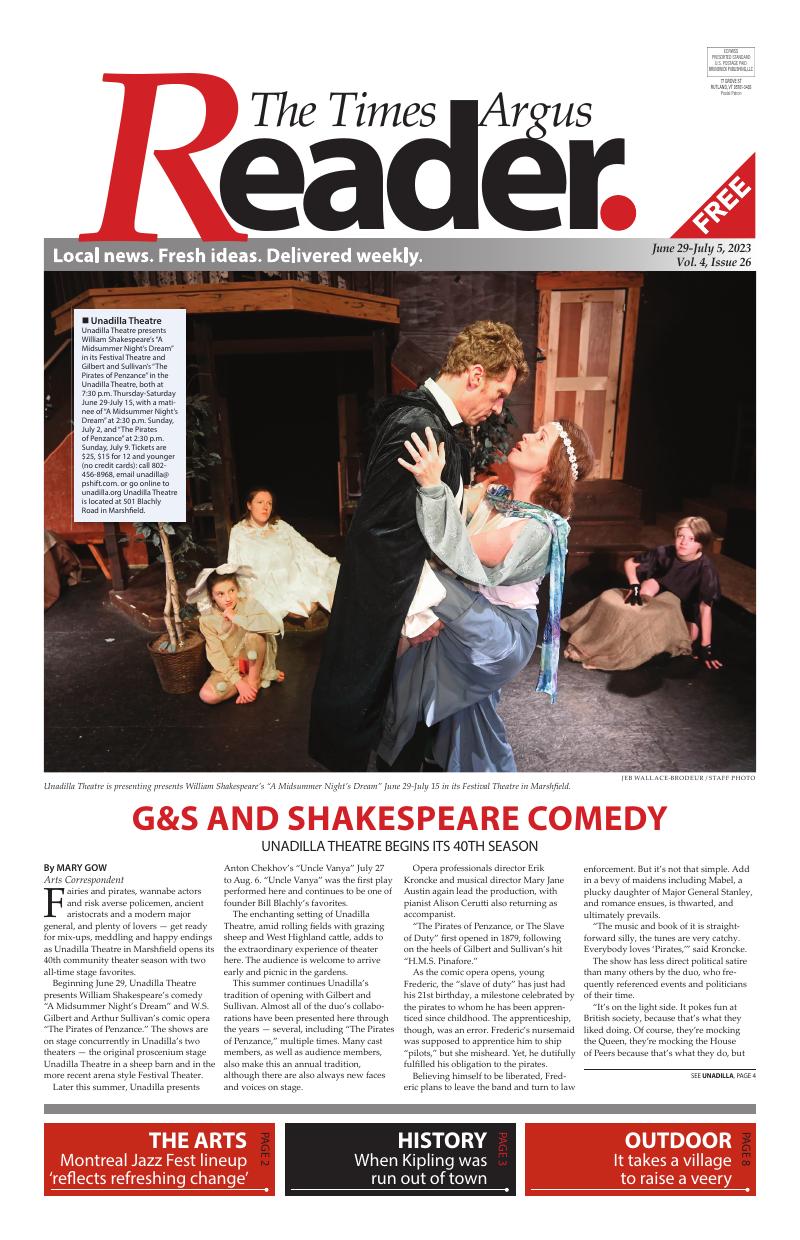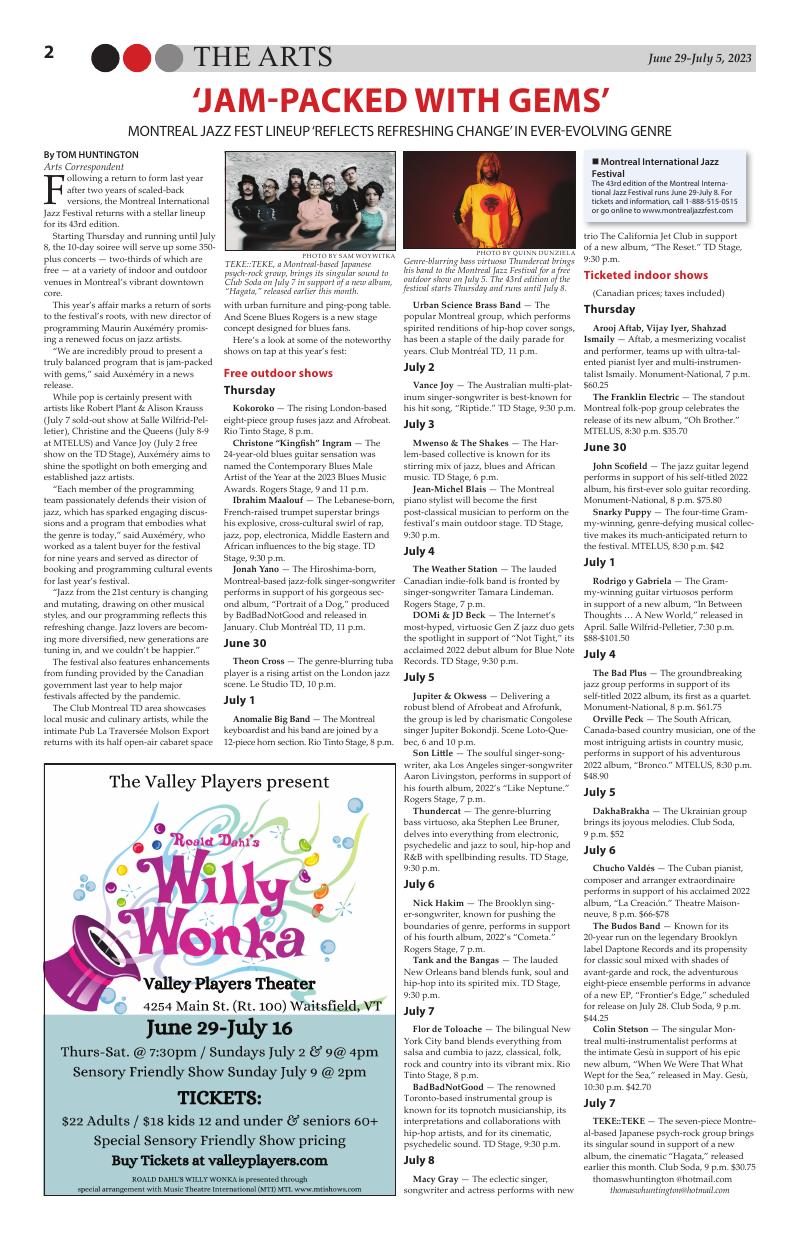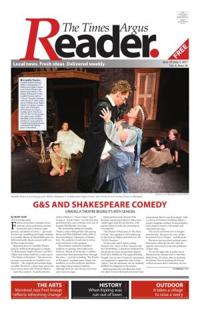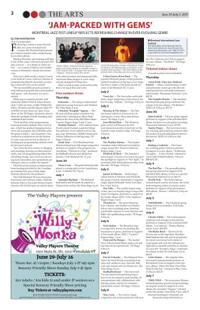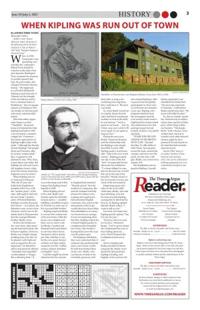G&S and Shakespeare comedy: Unadilla Theatre begins its 40th season
Fairies and pirates, wannabe actors and risk averse policemen, ancient aristocrats and a modern major general, and plenty of lovers — get ready for mix-ups, meddling and happy endings as Unadilla Theatre in Marshfield opens its 40th community theater season with two all-time stage favorites.
Beginning June 29, Unadilla Theatre presents William Shakespeare’s comedy “A Midsummer Night’s Dream” and W.S. Gilbert and Arthur Sullivan’s comic opera “The Pirates of Penzance.” The shows are on stage concurrently in Unadilla’s two theaters — the original proscenium stage Unadilla Theatre in a sheep barn and in the more recent arena style Festival Theater.
Later this summer, Unadilla presents Anton Chekhov’s “Uncle Vanya” July 27 to Aug. 6. “Uncle Vanya” was the first play performed here and continues to be one of founder Bill Blachly’s favorites.
The enchanting setting of Unadilla Theatre, amid rolling fields with grazing sheep and West Highland cattle, adds to the extraordinary experience of theater here. The audience is welcome to arrive early and picnic in the gardens.
This summer continues Unadilla’s tradition of opening with Gilbert and Sullivan. Almost all of the duo’s collaborations have been presented here through the years — several, including “The Pirates of Penzance,” multiple times. Many cast members, as well as audience members, also make this an annual tradition, although there are also always new faces and voices on stage.
Opera professionals director Erik Kroncke and musical director Mary Jane Austin again lead the production, with pianist Alison Cerutti also returning as accompanist.
“The Pirates of Penzance, or The Slave of Duty” first opened in 1879, following on the heels of Gilbert and Sullivan’s hit “H.M.S. Pinafore.”
As the comic opera opens, young Frederic, the “slave of duty” has just had his 21st birthday, a milestone celebrated by the pirates to whom he has been apprenticed since childhood. The apprenticeship, though, was an error. Frederic’s nursemaid was supposed to apprentice him to ship “pilots,” but she misheard. Yet, he dutifully fulfilled his obligation to the pirates.
Believing himself to be liberated, Frederic plans to leave the band and turn to law enforcement. But it’s not that simple. Add in a bevy of maidens including Mabel, a plucky daughter of Major General Stanley, and romance ensues, is thwarted, and ultimately prevails.
“The music and book of it is straightforward silly, the tunes are very catchy. Everybody loves ‘Pirates,’” said Kroncke.
The show has less direct political satire than many others by the duo, who frequently referenced events and politicians of their time.
“It’s on the light side. It pokes fun at British society, because that’s what they liked doing. Of course, they’re mocking the Queen, they’re mocking the House of Peers because that’s what they do, but not getting into anything heavy that you have to go and research what they are talking about,” said Kroncke.
Kroncke, who has a special fondness for Gilbert and Sullivan, studied with John Reed, the legendary English actor, singer, dancer longtime principal comedian of the D’Oyly Carte Opera Company.
Reed, Kroncke noted, always emphasized that, “This is opera and it needs to be sung. It is about the music. That aspect has to be there. If it’s not there it’s still fun and funny but it’s not as good. When you have the music there, it is spectacular.”
“Mary Jane is just unbelievable,” Kroncke said. “We have a higher expectation than maybe we should, but people really step up to it and we have really high musical quality.”
Across the Unadilla gardens, the path to romance is also convoluted in “A Midsummer Night’s Dream.”
Jeanne Beckwith, who directs the production, said, “We can go on about what Shakespeare’s greatest play is, but I think ‘A Midsummer Night’s Dream’ is just almost perfect. It has action from beginning to end. There is always something happening. You’ve got fairies. You’ve got rude mechanicals. You’ve got magic. It has beautiful speeches.”
With even more twists than in “Penzance,” multiple plots interweave through Shakespeare’s 1596 comedy. Duke Theseus of Athens is marrying Amazon queen Hippolyta. At the same time, young Hermia is in love with Lysander, but her father insists she marry Demetrius. And Hermia’s best friend is in love with Demetrius.
Add to the mix a troupe of traveling actors planning to perform a play for Theseus and Hippolyta’s nuptials.
In the meantime, Oberon and Titania, King and Queen of the fairies, are having their differences, which Oberon figures can be resolved to his advantage by Robin “Puck” Goodfellow and his magic potion. It does not go as planned.
The originality of “A Midsummer Night’s Dream” makes it stand out, noted Beckwith.
“Most scholars agree that there is no previous text for ‘A Midsummer Night’s Dream.’ It’s not taken from Plutarch or an earlier play. The fairy characters come from mythology and folklore. Puck is Robin Goodfellow, he’s kind of a folklore hero. Oberon is a German king. Shakespeare just made this up. That is some of what’s fun about it,” said Beckwith.
“It’s a play about the imagination, it’s a play about poetry. It’s a play about theater — I think that’s why actors are so in love with it — an actor getting to play an actor pretending to be an actor.”

